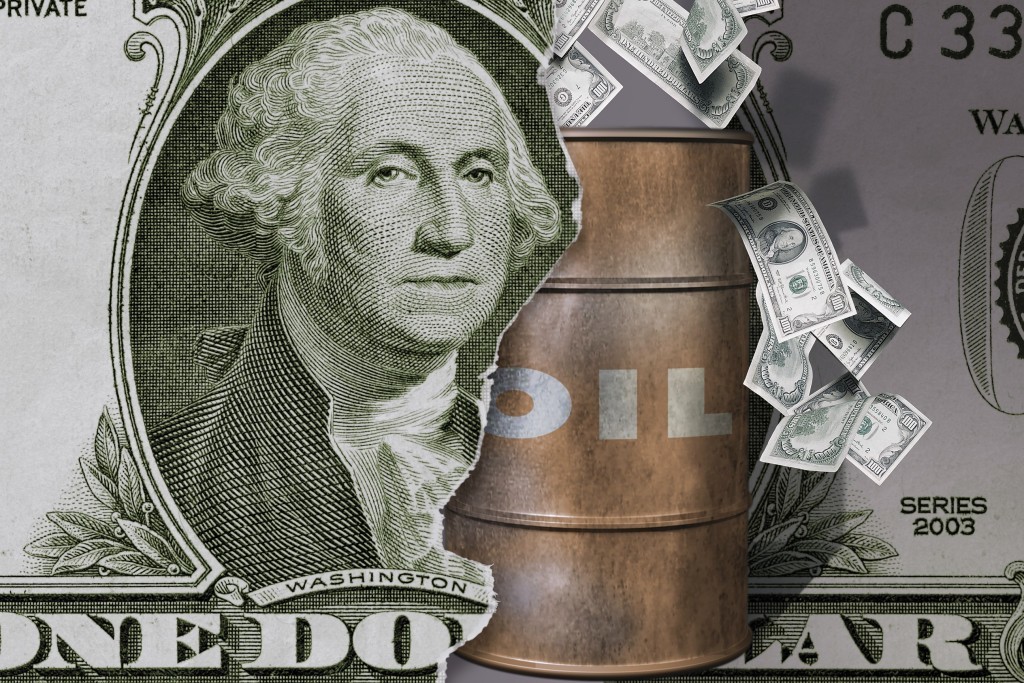
Markets are currently in a well-oiled “death spiral,” according to Citigroup analysts.
“It appears that four inter-linked phenomena are driving a negative feedback loop in the global economy and across financial markets,” the analysts write, citing the resilient US dollar, lower commodities prices, weaker trade and capital flows, and declining emerging market growth.
“It seems reasonable to assume that another year of extreme moves in US dollar (higher) and oil/commodity prices (lower) would likely continue to drive this negative feedback loop and make it very difficult for policy makers in emerging markets and developing markets to fight disinflationary forces and intercept downside risks,” the analysts add.
“Corporate profits and equity markets would also likely suffer further downside risk in this scenario of oilmageddon.”
Their case is bolstered by a collection of charts showing the linkages between the four factors cited above, including the importance of lofty oil prices to the ready supply of petrodollars circulating in the world economy and flowing to financial assets.
Oil exporters have enjoyed more than $6 trillion flowing into their current accounts, according to Citi’s estimates, implying some $4 trillion of capital in sovereign wealth funds (SWFs).
“But, the collapse in oil/commodity prices and sharp fall in the pace of world trade means that these same economies will likely experience an aggregate current account deficit for the first time since 1998,” says Citi.
“In turn, this is likely to put pressure on SWF and broader emerging market liquidity as governments and emerging market economies would need to ‘lean’ on reserves in order to maintain economic, political and social stability. This has clear feedback loops across emerging markets.”
Accordingly, the impact of the feedback loop is being felt far and wide in financial markets, extending even to U.S. inflation expectations. Where once 10-year inflation breakevens had little relationship with the price of oil, they have for the past two years moved in tandem.
With house forecasts for a 4% strengthening of the trade-weighted U.S. dollar and oil prices at $50 a barrel by the end of the year, Citi offers some hope that the feedback loop can be partially reversed, though not necessarily broken. Should the bank’s base case of stabilizing currency and commodities markets materialize, the analysts say, financial assets should respond accordingly and recover.
However, a move “the other way would add fuel to a ‘significant and syncronised’ global recession,” the bank warns warns.
“We should all fear oilmageddon,” Citi concludes. “Global recession, as we define it, would leave nowhere to hide in equities. Cash wins.”
Recommended for you
